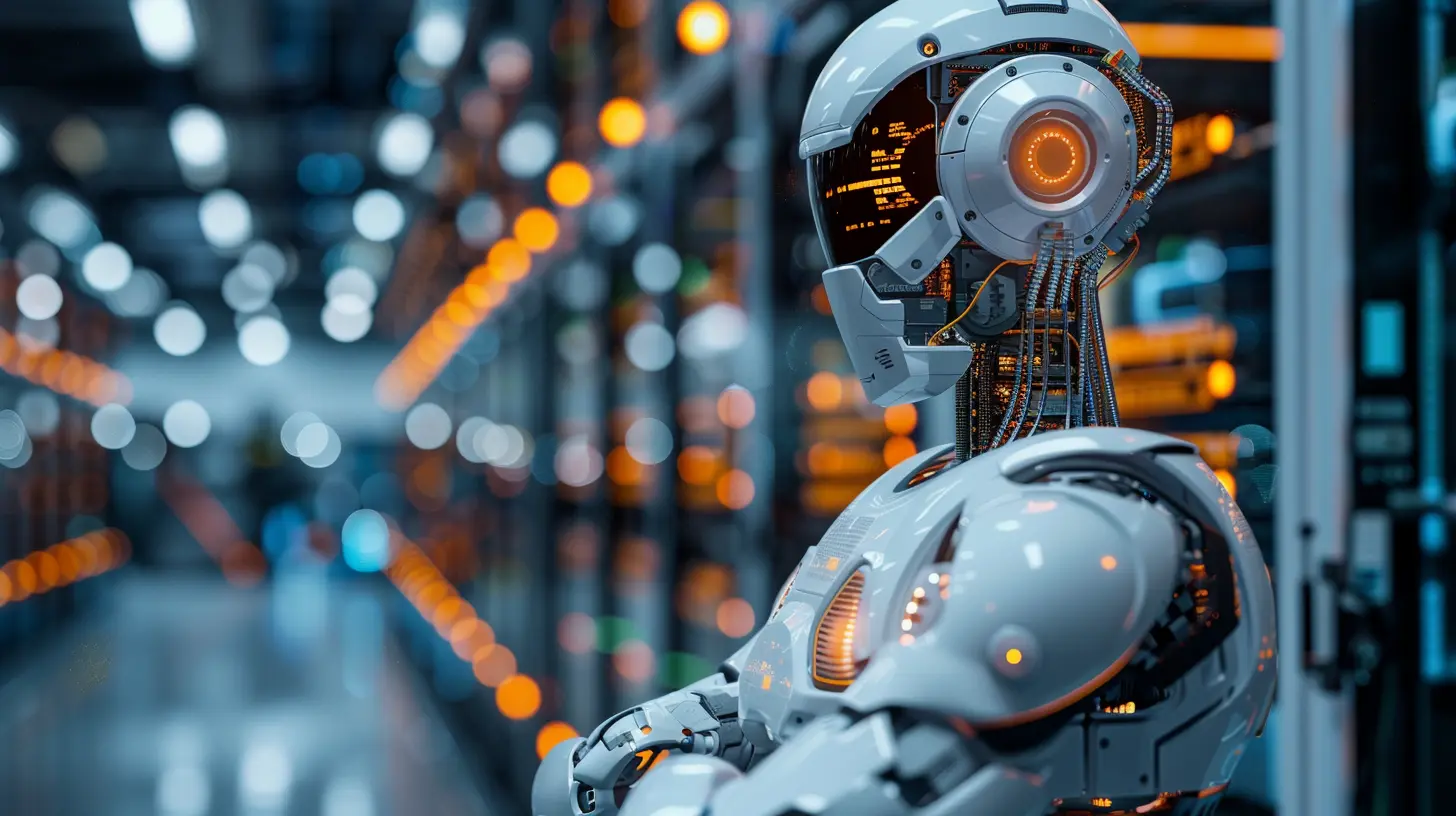The Impact of AI on Supply Chain and Operations Management
23 July 2025
Artificial Intelligence (AI) is revolutionizing supply chain and operations management in ways we never imagined. From predictive analytics to automation, AI is making logistics smarter, faster, and more efficient. But what exactly does this mean for businesses? How are AI technologies transforming supply chains, and what challenges do companies face when adopting them? Let’s dive in and explore how AI is reshaping the future of supply chain management.

How AI is Changing Supply Chain and Operations
AI is no longer a futuristic concept—it’s here, and it’s transforming the way businesses operate. Companies that integrate AI into their supply chain processes gain a competitive edge by improving efficiency, reducing costs, and enhancing customer satisfaction. Here are some of the key ways AI is making an impact:1. Demand Forecasting and Inventory Management
Imagine being able to predict exactly how much inventory you’ll need next month, next week, or even tomorrow. AI-powered predictive analytics make this possible. By analyzing historical data, market trends, and even external factors like weather or economic conditions, AI can help businesses accurately forecast demand.Benefits of AI in demand forecasting:
- Reduced waste – No more overstocking or understocking.
- Better cash flow – Businesses can allocate resources more efficiently.
- Increased profitability – Less money tied up in unsold inventory.
Retailers, for example, use AI to anticipate customer demand and stock shelves accordingly. This minimizes losses and ensures customers find what they need when they need it.
2. Automation in Warehousing and Logistics
AI-powered robots and automation systems have revolutionized warehousing and logistics. Think about Amazon’s fulfillment centers—robots move products around seamlessly, reducing human error and increasing speed.AI-driven automation helps in:
- Picking and packing orders – Automated systems can locate and package products faster than humans.
- Sorting shipments – AI algorithms optimize the best routes for deliveries.
- Reducing labor costs – Fewer manual tasks mean lower operational expenses.
With AI handling repetitive tasks, employees can focus on higher-value activities, such as customer service and strategy development.
3. Smart Route Optimization in Transportation
AI-driven route optimization has completely transformed logistics. Gone are the days of relying solely on maps and gut instincts. AI analyzes real-time traffic data, weather conditions, and even roadblocks to suggest the most efficient delivery routes.Key advantages:
- Lower fuel consumption – AI identifies faster, shorter routes.
- Faster deliveries – Customers receive their orders on time.
- Reduced carbon footprint – Environmentally friendly logistics operations.
Companies like UPS use AI to optimize delivery routes, saving millions in fuel costs and improving delivery timelines.
4. AI-Powered Supplier Selection and Risk Management
Choosing the right suppliers is crucial for business success. AI can analyze supplier data, past performance, and market trends to help businesses make smarter decisions.How AI helps in supplier management:
- Risk assessment – AI predicts potential disruptions, such as supplier bankruptcy or geopolitical conflicts.
- Cost optimization – Identifies suppliers offering the best value for money.
- Improved collaboration – AI-powered platforms streamline communication between suppliers and businesses.
By minimizing risk and ensuring reliable partnerships, AI strengthens the entire supply chain.
5. Customer Experience and Personalized Logistics
Customers today expect fast, accurate, and personalized service. AI-driven tools help businesses meet these expectations by offering:- Chatbots and virtual assistants – Providing instant order updates and answering customer queries.
- Personalized recommendations – AI suggests products based on browsing and purchase history.
- Real-time tracking – Customers can monitor their orders from start to finish.
Retail giants like Walmart and Target use AI to enhance customer experience, ensuring shoppers receive exactly what they need, when they need it.

Challenges of Implementing AI in Supply Chains
While the benefits of AI in supply chain management are undeniable, businesses also face challenges when implementing these technologies.1. High Initial Investment Costs
AI-powered systems require significant upfront investment. Businesses must invest in software, hardware, and training to ensure employees can effectively use AI tools. However, despite the high costs, the long-term savings and efficiencies make AI a worthwhile investment.2. Data Privacy and Security Concerns
AI relies heavily on data, which raises concerns about cybersecurity and privacy. Companies must ensure that customer data and sensitive business information are protected from cyber threats. Implementing robust security measures and complying with data protection regulations is crucial.3. Workforce Adaptation and Job Displacement
AI automation can replace manual tasks, leading to concerns about job losses. However, instead of eliminating jobs, AI often shifts roles, requiring employees to develop new skills in AI management, data analysis, and problem-solving. Businesses should focus on reskilling and upskilling their workforce to adapt to these changes.4. Integration with Existing Systems
Many businesses struggle to integrate AI with their traditional supply chain systems. AI adoption requires seamless integration with ERP (Enterprise Resource Planning) and other management tools. A phased implementation approach can help minimize disruptions and ensure a smooth transition.
The Future of AI in Supply Chain Management
AI’s role in supply chain management will only continue to grow. As technology advances, expect to see even more innovations, such as:- AI-powered autonomous vehicles – Self-driving trucks and drones for deliveries.
- Blockchain integration – Enhancing transparency and security in supply chains.
- Hyperautomation – Combining AI with robotics and IoT for fully automated supply chains.
Businesses that embrace AI now will be better positioned to compete in the future. The key is to start small, test AI tools, and gradually scale up based on business needs.

Final Thoughts
AI is revolutionizing supply chain and operations management, making processes more efficient, cost-effective, and customer-centric. From demand forecasting to route optimization, AI-driven solutions are transforming how businesses operate. However, implementing AI comes with challenges, including costs, security concerns, and workforce adaptation.Despite these challenges, the future of AI in supply chains looks promising. Companies that invest in AI today will reap the benefits of a more resilient, agile, and competitive supply chain tomorrow. The question is—are you ready to embrace AI and stay ahead of the competition?
all images in this post were generated using AI tools
Category:
Operations ManagementAuthor:

Rosa Gilbert
Discussion
rate this article
1 comments
Lana McGowan
This article effectively highlights the transformative role of AI in supply chain and operations management. By streamlining processes, optimizing inventory, and enhancing decision-making, AI not only boosts efficiency but also drives innovation. Embracing these technologies is essential for businesses seeking to stay competitive in today’s dynamic market landscape.
July 31, 2025 at 12:49 PM

Rosa Gilbert
Thank you for your insightful comment! I'm glad you found the article highlights the critical role of AI in transforming supply chains and operations. Embracing these technologies is indeed key to maintaining competitiveness.


